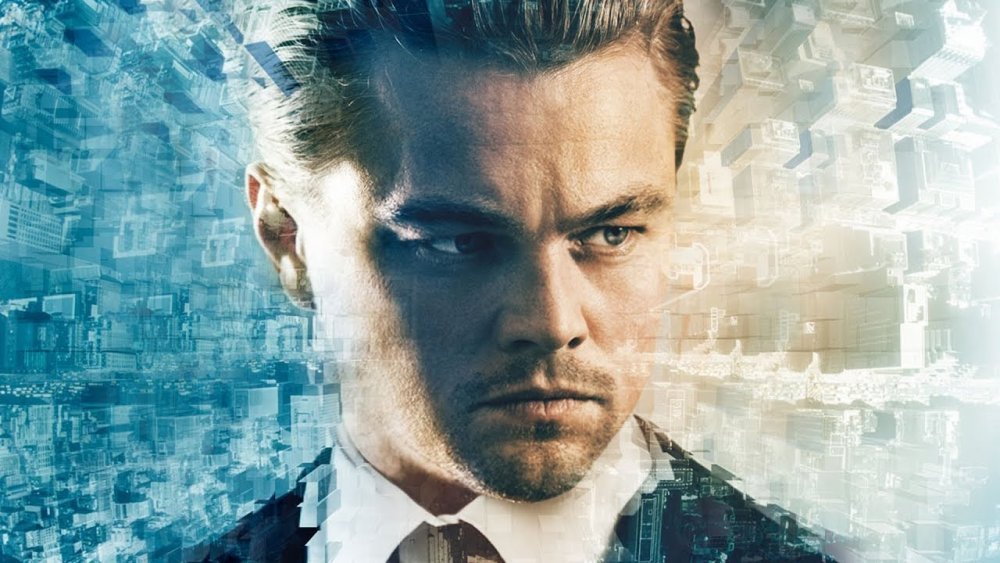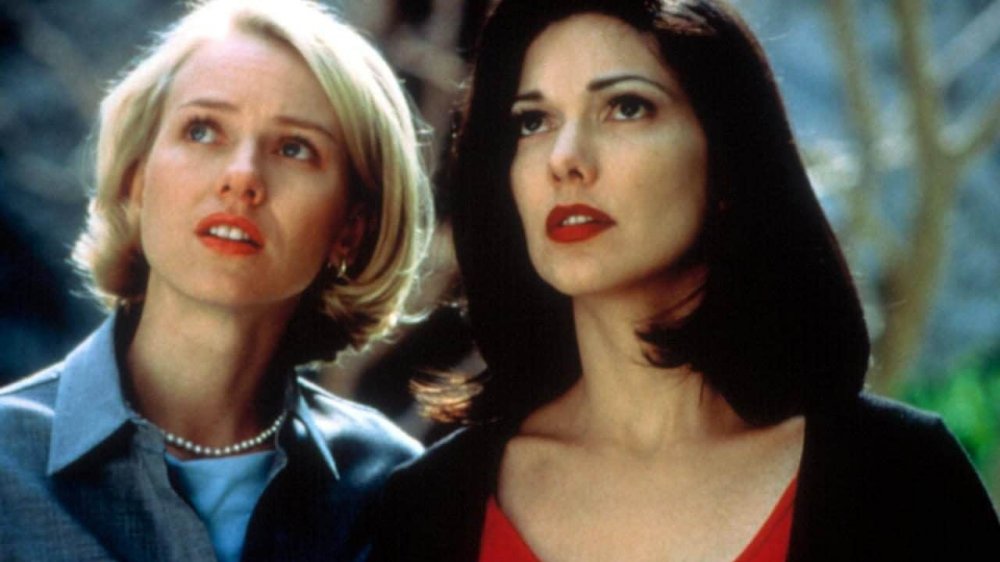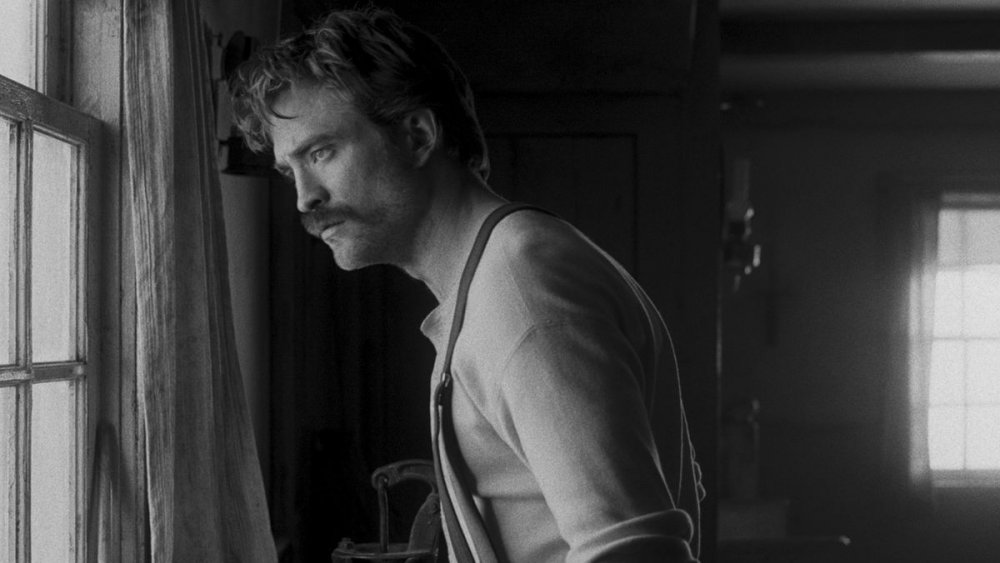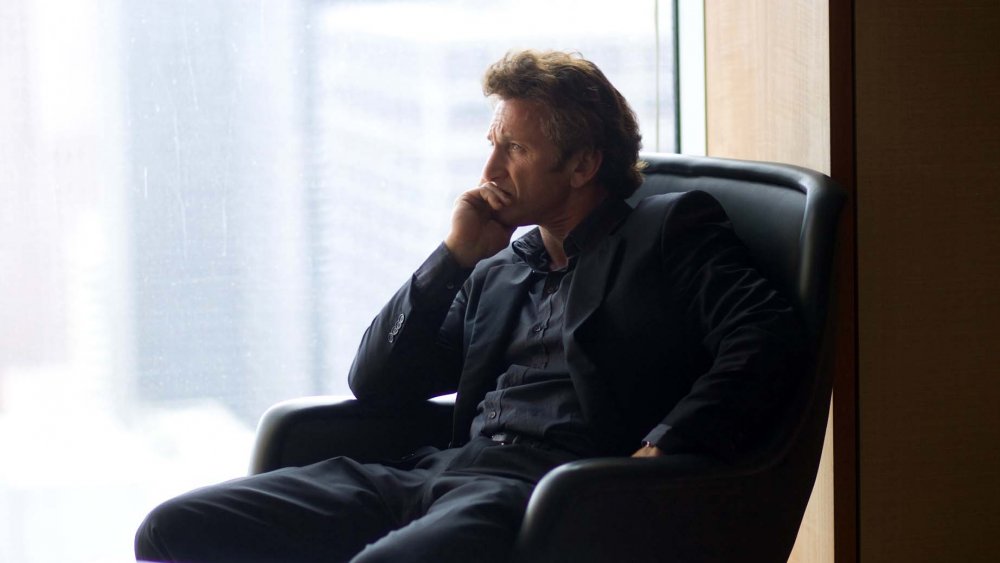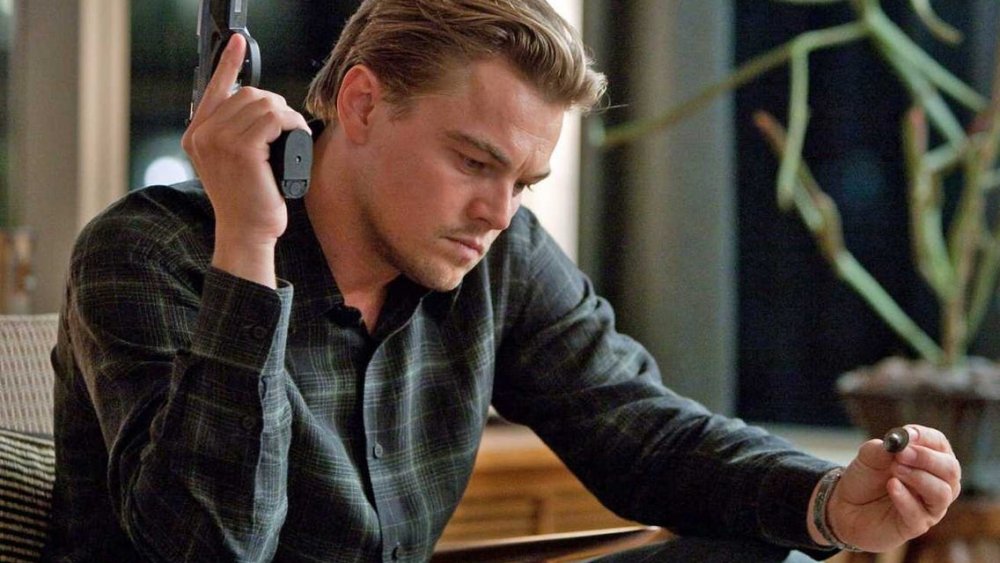These Actors Don't Understand The Endings Of Their Own Movies
There's no objectively correct way to interpret a movie's ending, but that doesn't stop people from trying. Truly dedicated viewers can comb through interviews, commentaries, and behind-the-scenes info in order to find out what the filmmakers believed while making the film, but that won't get the "right" answer. Art isn't a math problem, and you can't solve for "x" in order to find out why a movie ends with a viewer asking "why?"
What's more, sometimes even the artists themselves don't quite understand the art they made. Maybe it's a sign of true acting talent that some actors can be completely baffled by a movie while still delivering an unforgettable performance, or maybe it's just a sign that more actors need to read Looper to find out what the finales of their films mean. Either way, here are several actors who didn't understand the endings of their own movies. Obviously, beware of spoilers ahead if you haven't seen the films.
Laura Harring is still trying to understand Mulholland Drive's ending
There's arguably no other modern filmmaker who so consistently baffles audiences, critics, and even his own actors than David Lynch. The director's surreal, Americana-infused films defy genre, defy stereotypes, and even defy conventional ideas about filmmaking. And Mulholland Drive is not only a practically flawless film and one of Lynch's best, but it's also one of his most confusing. Some of that comes from the fact that the project started out as a television pilot before getting turned into one of the best films of the 21st century. Some of that confusion comes from the fact that it's a dreamy tapestry about Hollywood, acting, transformation, guilt, desire, and a man outside the Winkie's.
And while fans are still trying to figure out what it all means, star Laura Harring, who plays Rita/Camilla Rhodes in the movie, seems content to wonder and interpret the meaning of her own film. She told The Independent that Mulholland Drive feels like reading a book in that it leaves questions while still making you feel fulfilled. As Harring put it, "Who was killed? Was it Diane? Was it Camilla? Was it Rita? Was it Betty? Who was on that bed at the end? And, when you think about it, it could be any one of them; the film works with any character." Harring was kind enough to offer her most recent interpretation that "the dead body at the end is the death of the ego, and how we can really be free at the end." Still, that interview was written in 2017, so we'd guess that she's arrived at an entirely different interpretation now.
Robert Pattinson can't shed any light on The Lighthouse
Robert Pattinson is no stranger to giving incredibly blunt answers in interviews. The actor's Twilight publicity circuit is the stuff of legends, and Pattinson has seemingly traded in his sparkly vampire abs for weird space intimacy, Cronenberg prostate exams, and grubby, postmodern westerns. In fact, according to the actor himself, he's really only looking for the weirdest possible projects that he can find after hitting the mainstream with Twilight and a role in Harry Potter. In fact, he told director Robert Eggers (The Witch) that he "just want[ed] to do something weird." The director certainly obliged with The Lighthouse.
Eggers and Pattinson's 2019 collaboration follows two lighthouse keepers, played by Pattinson and Willem Dafoe, whose isolation quickly drives them to madness. Or maybe a magic lighthouse drives them to madness. Or maybe it's the curse of a sea bird, or perhaps DaFoe's lighthouse keeper is a great god of the sea, or maybe they're just dehydrated from drinking too much alcohol and not enough water. It's unclear. As it turns out, the ending is also unclear to Pattinson. Of the film's ending, which sees his character finally viewing the lighthouse in all its glory, Pattinson told the LA Times that he had no idea what the ending meant. All Pattinson could offer was the stage direction that Eggers had given him. "He said looking at the light was so pleasurable that it starts to become incredibly painful and then incredibly frightening afterward."
Sean Penn doesn't really understand The Tree of Life
Actors need to be very careful about what they say about their projects. Even if they're giving an interview to a foreign paper with answers that won't be translated into English, that's no protection against having their words come back to bite them. In Sean Penn's case, he not only doesn't understand the ending to The Tree of Life, he doesn't even really like the way the story was told. As reported by The Guardian, Penn told the French newspaper Le Figaro, "A clearer and more conventional narrative would have helped the film without, in my opinion, lessening its beauty and its impact." Penn continued to say, "Frankly, I'm still trying to figure out what I'm doing there and what I was supposed to add in that context! What's more, [Terrence Malick] himself never managed to explain it to me clearly."
While plenty of critics and audience members might agree that The Tree of Life is one of the more baffling movies the last decade, Penn's inability to figure out what he's doing in the film is a little worrying. After all, Penn literally plays the main character. Granted, he only shows up in the movie for about ten minutes, but he's playing a grown-up version of the kid we've been following throughout the entire film. So yeah, it seems that Penn of all people should've probably tried a little harder to figure out what was happening with that ending.
Colin Farrell can't make up his mind about The Lobster
Colin Farrell is certainly no stranger to weird films with ambiguous endings, but Greek filmmaker Yorgos Lanthimos certainly pushed him to the brink with The Lobster. The film follows a man in a dystopian future where single people are given 45 days to find a romantic partner before they get turned into an animal. As you might expect if you've seen The Killing of a Sacred Deer or The Favourite, Lanthimos injects plenty of absurd humor, shocking violence, and dark implications into the film as Farrell's character, David, tries to find a romantic partner before ending up as a lobster. As to what he actually ends up as, well, it's left fairly ambiguous.
The film ends with David contemplating blinding himself in order to emotionally connect with his newly-blind partner. As to whether David actually does the deed, Farrell admitted to Entertainment Weekly that he has no idea. "I couldn't tell you," he explained. "The writer and director can't tell even you — and it's not because we're holding the answer close to our chests, but because there is no answer. In the film, there is no before; there is no after." Still Farrell was kind enough to present some alternate ideas, although he can't make up his mind which is the "right" answer. "Honest to God, part of me thinks he does it. Then part of me thinks that when the camera cuts back to Rachel Weisz, I'm already in a f—ing Uber." Then Farrell added, "And part of me goes to the third option. ... That he doesn't do it, but he goes back to her and tells her that he did. There are so many different options."
Leonardo DiCaprio still isn't sure if he's dreaming in the ending of Inception
Inception was a bold experiment in original filmmaking from director Christopher Nolan. Fresh off the success of Batman Begins and The Dark Knight, Nolan managed to secure an absurd $160 million budget for an original feature about a group of thieves who steal secrets from your dreams. The movie was a smash hit, it cemented Nolan as an undeniable force in American cinema, and it garnered great reviews from critics and audiences alike. What's more impressive is that Inception received all that praise even when a significant number of people were openly confused by the story and the ending.
Inception ends with Dominic Cobb (Leonardo DiCaprio) seemingly successful at planting the requested thought into his target's mind. With the job complete, he's finally allowed to come home after spending years in hiding following his implication in his wife's death. But when he finally greets his children, he walks away from the spinning top that tells him if he's dreaming or not, forgetting to check if it topples over. The film never conclusively answers whether or not Cobb is dreaming at the end, and it seems even DiCaprio has no idea. He told Marc Maron on an episode of his podcast, "When it came to Chris Nolan and his mind, everyone was constantly trying to put that puzzle together." He continued on to say that "[the ending] depends on the eye of the beholder." Maybe DiCaprio just needs to read our explanation to understand how Inception ended.
